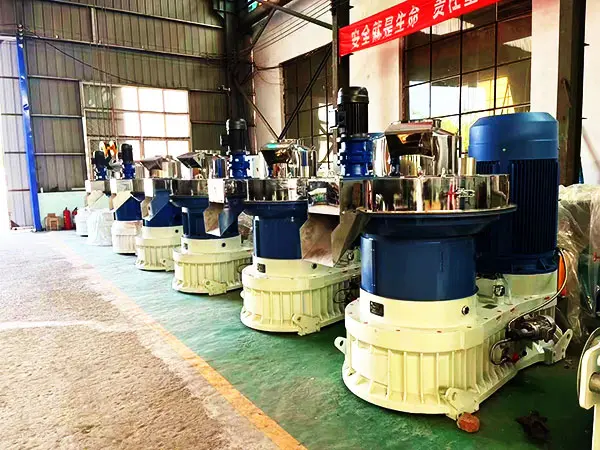How Should Wood Pellet Machine Manufacturers Choose
#News · 2025 / 01 / 18

1. Field trip:
Personally visit the factory to understand the true propaganda of the pellet machine manufacturer and avoid being misled by false information.
Through field investigation, you can intuitively feel the scale, strength, order quantity and management of the manufacturer is standardized.
2. Demand matching and budget:
Be clear about the purpose of your use, whether it is for home heating, power generation, industrial production or agricultural biomass energy utilization, to ensure that the selected equipment meets the needs.
Know your investment budget, including equipment costs, operating costs and long-term maintenance costs, to ensure economic viability
3. Product performance and quality:
Pay attention to combustion efficiency and choose equipment that can efficiently burn wood chips and produce high quality heat energy.
Inspect particle size control, cleanup systems, and safety and environmental performance, such as fire prevention measures and combustion emissions, in compliance with local environmental standards.
Check whether the product has passed the certification, such as CE, ISO and other relevant standards to ensure product quality.
4. After-sales service:
Ask the supplier to provide after-sales service content, including whether to provide perfect after-sales commitment, timely response speed and original parts supply.
Good after-sales service is an important guarantee for long-term stable operation of equipment.
5. Market reputation and customer evaluation:
Learn about manufacturers' word-of-mouth and customer reviews through industry associations, professional media, peer recommendations and other channels.
View customer reviews and case studies to learn about other customers' satisfaction in order to more fully assess the strength and service level of the pellet machine manufacturer.
6. Price and performance ratio:
When considering the price, the quality, performance, service and long-term operating costs of the equipment should be considered.
Choose products that are cost-effective, rather than just pursuing low prices.
In summary, when selecting wood pellet machine manufacturers, field visits, demand matching and budget, product performance and quality, after-sales service, market reputation and customer evaluation, and price and cost performance should be considered comprehensively to ensure that the purchase of satisfactory and suitable equipment.
